
Exploring further the concepts of free jazz, saxophonist Ornette Coleman's back-to-back 1961 & 62 albums find the composer and innovator in a ground-breaking double quartet that includes Eric Dolphy, Don Cherry & Freddie Hubbard, Scott LaFaro & Charlie Haden, and Billy Higgns & Ed Blackwell; then with quintet with Scott LaFaro temporarily taking Charlie Haden's chair.
In Stock
Quantity in Basket: None
Log In to use our Wish List
Shipping Weight: 3.00 units
EU & UK Customers:
Discogs.com can handle your VAT payments
So please order through Discogs
Sample The Album:
Ornette Coleman-alto saxophone
Don Cherry-pocket trumpet
Scott LaFaro-double bass
Ed Blackwell-drums
Click an artist name above to see in-stock items for that artist.
UPC: 752156117223
Label: ezz-thetics by Hat Hut Records Ltd
Catalog ID: ezz-theitcs 1172
Squidco Product Code: 34998
Format: CD
Condition: New
Released: 2024
Country: USA
Packaging: Cardboard Gatefold
Track 1 recorded in New York City, on January 31st, 1961.
Tracks 2 through 5 recorded in New York City, on December 21st, 1960.
Ornette Coleman Double Quartet Free Jazz: A Collective Improvisation originally released in 1961 as a vinyl LP on the Atlantic label with catalog code SD 1364.
Ornette! originally released in 1962 as a vinyl LP on the Atlantic label with catalog code SD 1378.
"How free is free? Let's agree in asking we are working within an artistic/creative context, or the question takes on a rather different pragmatic reality although in many cases, specifically that of Ornette Coleman, the nature of freedom of choice and action in music was equally a metaphor for the freedom to control the parameters of one's own life. Yet Coleman's well-established reputation as the conscience and primary initiator of free-associative improvisation in the late 1950s reflects only a portion of his aesthetic and philosophical values; simultaneously, and from the very beginning of his career, he saw the formal relationships of composition to be a necessary balance to the spontaneity of the moment, as well as an adaptable vehicle for his theories of self-expression.
It's helpful in this regard to remember that Coleman's first recognition among musicians outside of his intimate circle of early collaborators came when Red Mitchell recommended him to Les Koenig of Contemporary Records not as an alto saxophonist of interest, but as a composer of intriguing post-bop themes. For decades thereafter, when working with quartets and trios, he continued to compose engaging and memorable "melodic environments" not exactly songs since, ironically, he required that his bandmates not conform to the constraint of any implicit harmonic basis and they devise new melodic alternatives and variable rhythmic emphasis, to enable them to discover their own freedom of identity, which would thus affect the spontaneous shape and direction of the entire ensemble. Although not so named initially, this was the unifying principle of "harmolodics."
Free Jazz, then, was the breakthrough that revealed how Coleman's compositional impetus could stimulate the improvisational responses of a larger ensemble in interrelated, additionally complex ways. While we don't have precise evidence as to how long Ornette was working on the concept, there are some significant circumstances prior to its recording in December 1960. In the months preceding this, Coleman had been involved as a featured soloist in Gunther Schuller's Third Stream chamber works "Abstraction" and "Variants on a Theme of Thelonious Monk," including a performance in September at the Monterey Jazz Festival. Eric Dolphy was also a participant in Schuller's ensemble, as was bassist Scott LaFaro, who had been working with Ornette's quartet during that year as a replacement for the incapacitated Charlie Haden. It seems likely that Coleman's compositional interests would have been confirmed by the extended harmonic fluctuations and contrapuntal fabric of Schuller's scores, although his intention was to allow the musicians greater improvisational license.
In today's parlance, the title Free Jazz is something of a misnomer, in that Ornette compositionally defined the structure of the music as an organized network of interrelationships, integrating themes and transitions purposefully designed, while allowing the formal qualities to be determined by the individual solos and, crucially, the overlapping spontaneous commentary. In essence, the effect of freedom here results in an architecture of unpredictable linear details, supported by the foundation of dense, kinetic rhythm. Strategically, Coleman plotted the eight instrumental voices not as an octet, but a double quartet, ensuring a stronger sense of contrast among related tonalities an effect he would pursue once again with doubled guitars and drums in the harmolodic counterpoint of Prime Time.
Ornette!, recorded five weeks later, is the only document we have of LaFaro in the quartet. (He died in a car crash on July 6, 1961, atage 25.) The exclamation point of the title is an indication of the album's dominant mood an elevated spirit, uptempo, optimistic themes inspiring animated solos, including a tracklong frolic for Blackwell's drums ("T and T"). The highpoint, however, is the dramatically arranged "C and D," opening with a crisply articulated, intricate unison episode, followed by LaFaro's noirish arco bass, an alto outing that soars and plummets pushed by buoyant drumming, and a raspy Cherry aria. The music's high spirits proved to be masking a valedictorian air; this would be the last group of its specific format (trumpet/alto saxophone/bass/drums) which Ornette would bring into the studio for ten years. Coleman apparently had other vistas on his mind, and the near future would hold more ambitious notated compositions, an extended hiatus from performing, and ultimately a re-designed adventurous trio through an extended period of patience and perseverance, all in the quest for artistic and personal freedom."-Art Lange, Chicago, March 2024
Artist Biographies
• Show Bio for Ornette Coleman "Randolph Denard Ornette Coleman (March 9, 1930 - June 11, 2015) was an American jazz saxophonist, violinist, trumpeter, and composer known as a principal founder of the free jazz genre, a term derived from his 1960 album Free Jazz: A Collective Improvisation. His pioneering performances often abandoned the chordal and harmony-based structure found in bebop, instead emphasizing a jarring and avant-garde approach to improvisation. Born in Fort Worth, Texas, Coleman began his musical career playing in local R&B and bebop groups, and eventually formed his own group in Los Angeles featuring members such as Ed Blackwell, Don Cherry, Charlie Haden, and Billy Higgins. In 1959, he released the controversial album The Shape of Jazz to Come and began a long residency at the Five Spot jazz club in New York City. His 1960 album Free Jazz would profoundly influence the direction of jazz in that decade. Beginning in the mid-1970s, Coleman formed the group Prime Time and explored funk and his concept of Harmolodic music. Coleman's "Broadway Blues" and "Lonely Woman" became genre standards and are cited as important early works in free jazz. His album Sound Grammar received the 2007 Pulitzer Prize for Music. AllMusic called him "one of the most important (and controversial) innovators of the jazz avant-garde"." ^ Hide Bio for Ornette Coleman • Show Bio for Don Cherry "Imagination and a passion for exploration made Don Cherry one of the most influential jazz musicians of the late 20th century. A founding member of Ornette Coleman's groundbreaking quartet of the late '50s, Cherry continued to expand his musical vocabulary until his death in 1995. In addition to performing and recording with his own bands, Cherry worked with such top-ranked jazz musicians as Steve Lacy, Sonny Rollins, Archie Shepp, Albert Ayler, John Coltrane, and Gato Barbieri. Cherry's most prolific period came in the late '70s and early '80s when he joined Nana Vasconcelos and Collin Walcott in the worldbeat group Codona, and with former bandmates Charlie Haden and Ed Blackwell, and saxophonist Dewey Redman in the Coleman-inspired group Old and New Dreams. Cherry later worked with Vasconcelos and saxophonist Carlos Ward in the short-lived group Nu. The Avant-Garde Born in Oklahoma City in 1936, he first attained prominence with Coleman, with whom he began playing around 1957. At that time Cherry's instrument of choice was a pocket trumpet (or cornet) -- a miniature version of the full-sized model. The smaller instrument -- in Cherry's hands, at least -- got a smaller, slightly more nasal sound than is typical of the larger horn. Though he would play a regular cornet off and on throughout his career, Cherry remained most closely identified with the pocket instrument. Cherry stayed with Coleman through the early '60s, playing on the first seven (and most influential) of the saxophonist's albums. In 1960, he recorded The Avant-Garde with John Coltrane. After leaving Coleman's band, Cherry played with Steve Lacy, Sonny Rollins, Archie Shepp, and Albert Ayler. In 1963-1964, Cherry co-led the New York Contemporary Five with Shepp and John Tchicai. With Gato Barbieri, Cherry led a band in Europe from 1964-1966, recording two of his most highly regarded albums, Complete Communion and Symphony for Improvisers. Cherry began the '70s by teaching at Dartmouth College in 1970, and recorded with the Jazz Composer's Orchestra in 1973. He lived in Sweden for four years, and used the country as a base for his travels around Europe and the Middle East. Cherry became increasingly interested in other, mostly non-Western styles of music. In the late '70s and early '80s, he performed and recorded with Codona, a cooperative group with percussionist Nana Vasconcelos and multi-instrumentalist Collin Walcott. Codona's sound was a pastiche of African, Asian, and other indigenous musics. Art Deco Concurrently, Cherry joined with ex-Coleman associates Charlie Haden, Ed Blackwell, and Dewey Redman to form Old and New Dreams, a band dedicated to playing the compositions of their former employer. After the dissolution of Codona, Cherry formed Nu with Vasconcelos and saxophonist Carlos Ward. In 1988, he made Art Deco, a more traditional album of acoustic jazz, with Haden, Billy Higgins, and saxophonist James Clay. Multikulti Until his death in 1995, Cherry continued to combine disparate musical genres; his interest in world music never abated. Cherry learned to play and compose for wood flutes, tambura, gamelan, and various other non-Western instruments. Elements of these musics inevitably found their way into his later compositions and performances, as on 1990's Multi Kulti, a characteristic celebration of musical diversity. As a live performer, Cherry was notoriously uneven. It was not unheard of for him to arrive very late for gigs, and his technique -- never great to begin with -- showed on occasion a considerable, perhaps inexcusable, decline. In his last years, especially, Cherry seemed less self-possessed as a musician. Yet his musical legacy is one of such influence that his personal failings fade in relative significance." ^ Hide Bio for Don Cherry • Show Bio for Scott LaFaro "Rocco Scott LaFaro (April 3, 1936 - July 6, 1961) was an American jazz double bassist known for his work with the Bill Evans Trio. LaFaro broke new ground on the instrument, developing a countermelodic style of accompaniment rather than playing traditional walking basslines, as well as virtuosity that was practically unmatched by any of his contemporaries. Despite his short career, he remains one of the most influential jazz bassists, and was ranked number 16 on Bass Player magazine's top 100 bass players of all time." ^ Hide Bio for Scott LaFaro • Show Bio for Ed Blackwell "Edward Joseph Blackwell (October 10, 1929 - October 7, 1992) was an American jazz drummer born in New Orleans, Louisiana, known for his extensive, influential work with Ornette Coleman. Blackwell's early career began in New Orleans in the 1950s. He played in a bebop quintet that included pianist Ellis Marsalis and clarinetist Alvin Batiste. There was also a brief stint touring with Ray Charles. The second line parade music of New Orleans greatly influenced Blackwell's drumming style and could be heard in his playing throughout his career. Blackwell first came to national attention as the drummer with Ornette Coleman's quartet around 1960, when he took over for Billy Higgins in the quartet's stand at the Five Spot in New York City. He is known as one of the great innovators of the free jazz of the 1960s, fusing New Orleans and African rhythms with bebop. In the 1970s and 1980s Blackwell toured and recorded extensively with fellow Ornette Quartet veterans Don Cherry, Charlie Haden, and Dewey Redman in the quartet Old and New Dreams. In the late 1970s Blackwell became an Artist-in-Residence at Wesleyan University in Middletown, Connecticut. Blackwell was a beloved figure on the Wesleyan Campus until he died. In 1981, he performed at the Woodstock Jazz Festival, held in celebration of the tenth anniversary of the Creative Music Studio. "The Ed Blackwell Project" members were Mark Helias, bass, Carlos Ward, alto sax/flute, and Graham Haynes (son of drummer Roy Haynes), cornet. After years of kidney problems, Blackwell died in 1992. The following year he was inducted into the Down Beat Jazz Hall of Fame." ^ Hide Bio for Ed Blackwell
1/14/2026
Have a better biography or biography source? Please Contact Us so that we can update this biography.
1/14/2026
Have a better biography or biography source? Please Contact Us so that we can update this biography.
1/14/2026
Have a better biography or biography source? Please Contact Us so that we can update this biography.
1/14/2026
Have a better biography or biography source? Please Contact Us so that we can update this biography.
Track Listing:
1. Free Jazz 37:05
2. W.R.U. 15:42
3. T.&T. 4:37
4. C. & D. 12:55
5. R.P.D.D. 9:40
Hat Art
Improvised Music
Jazz
Free Improvisation
NY Downtown & Metropolitan Jazz/Improv
Jazz & Improvisation Based on Compositions
Octet Recordings
Quintet Recordings
Jazz Reissues
Staff Picks & Recommended Items
Recent Releases and Best Sellers
Hat Hut Masters Sale
Search for other titles on the label:
ezz-thetics by Hat Hut Records Ltd.


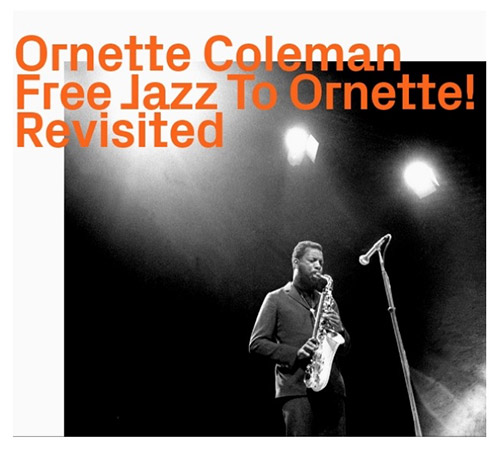



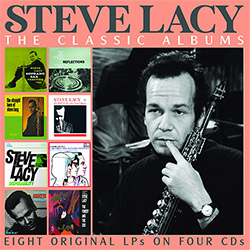

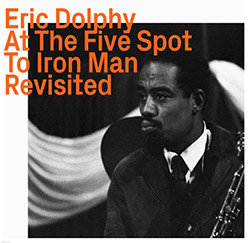
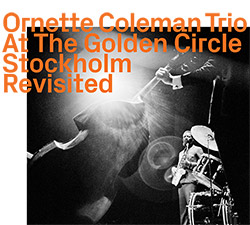

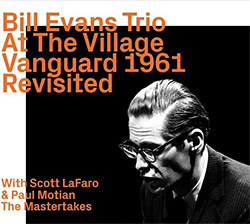
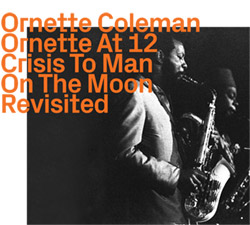




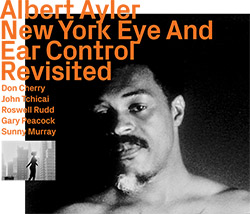
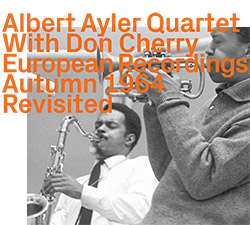
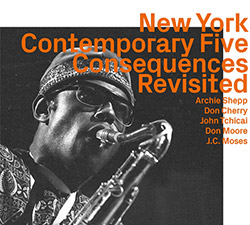


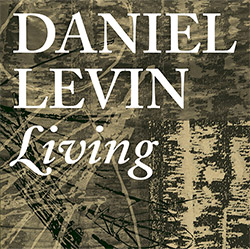

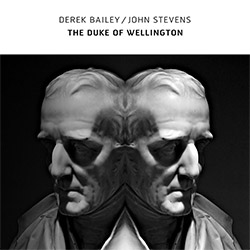







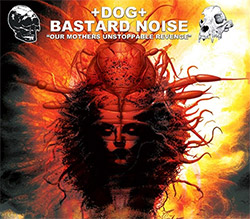



![Parker, Evan / Andrea Centazzo: Bullfighting On Ice! Live In Padova 1977 [VINYL]](https://www.teuthida.com/productImages/misc4/37064.jpg)
![Curran, Alvin / Andrea Centazzo / Evan Parker: Real Time [VINYL]](https://www.teuthida.com/productImages/misc4/37065.jpg)
![Curran, Alvin / Andrea Centazzo / Evan Parker: Real Time Two [VINYL]](https://www.teuthida.com/productImages/misc4/37066.jpg)

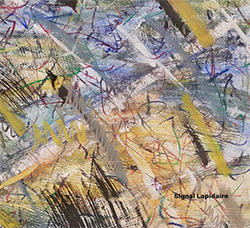

![Rodrigues, Ernesto / Jung-Jae Kim / Guilherme Rodrigues / Eric Bauer / Stephen Flinn: 5 In The Afternoon [2CDs]](https://www.teuthida.com/productImages/misc4/36957.jpg)

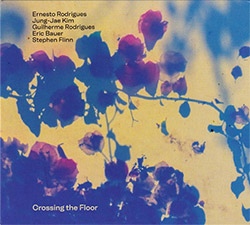





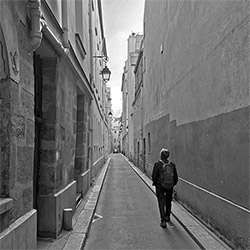
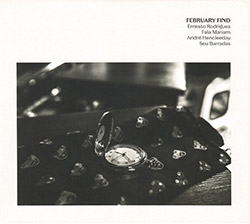




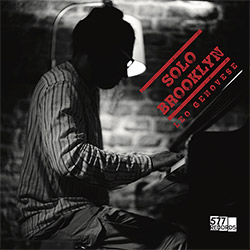
![Evans, Peter / Being & Becoming: Ars Ludricra [VINYL + DOWNLOAD]](https://www.teuthida.com/productImages/misc4/37026.jpg)
![HobbyHouse (Mia Dyberg / Axel Filip): HobbyHouse [CD + DOWNLOAD]](https://www.teuthida.com/productImages/misc4/36944.jpg)
![Mines, Kelsey / Erin Rogers: Scratching At The Surface [CD + DOWNLOAD]](https://www.teuthida.com/productImages/misc4/36945.jpg)
![Nebbia, Camila (feat/ Marilyn Crispell / Lesley Mok): A Reflection Distorts Over Water [CD + DOWNLOAD]](https://www.teuthida.com/productImages/misc4/36946.jpg)
![Vanheerentals, Adia: Taking Place [CD + DOWNLOAD]](https://www.teuthida.com/productImages/misc4/36947.jpg)
![Mines, Kelsey / Vinny Golia: Collusion and Collaboration [CD + DOWNLOAD]](https://www.teuthida.com/productImages/misc4/36948.jpg)
![Parkins, Zeena: Lament For The Maker [CD + DOWNLOAD]](https://www.teuthida.com/productImages/misc4/36949.jpg)
![Evans, Peter / Mike Pride : A Window, Basically [CD + DOWNLOAD]](https://www.teuthida.com/productImages/misc4/36950.jpg)
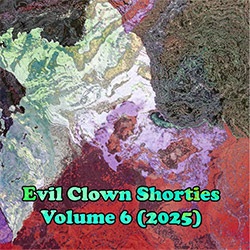
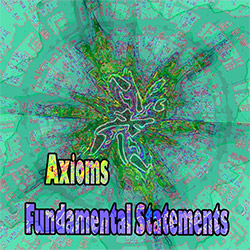

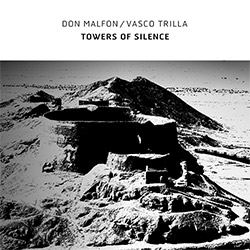
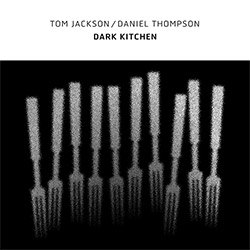

![Agnel, Sophie: Learning [VINYL]](https://www.teuthida.com/productImages/misc4/36841.jpg)
![Monaco, Amanda (w/ Michael Attias / Sean Conly / Satoshi Takeishi) : Deathblow [VINYL+ DOWNLOAD]](https://www.teuthida.com/productImages/misc4/36956.jpg)
![Belorukov, Ilia / Alex Riva: Wrestling For Futility [CASSETTE w/DOWNLOAD]](https://www.teuthida.com/productImages/misc4/36994.jpg)


![Genthon, Anouck / Lionel Marchetti: Suite Blanche [2 CDs]](https://www.teuthida.com/productImages/misc4/36642.jpg)
![Toeplitz, Kasper T.: Erosions Programmees [CD + BOOKLET]](https://www.teuthida.com/productImages/misc4/36639.jpg)
![Gate, The : Almost Live [CASSETTE + MAGAZINE]](https://www.teuthida.com/productImages/misc4/36836.jpg)






![A Magic Whistle: The Solar Cell [VINYL]](https://www.teuthida.com/productImages/misc4/36658.jpg)

![McGee, Hal: Columbus Expedition [Cassette w/ Download]](https://www.teuthida.com/productImages/misc4/36650.jpg)


![Jaeger, Kassel: Fernweh [VINYL 2 LPs]](https://www.teuthida.com/productImages/misc4/36541.jpg)





![+DOG+: The Light Of Our Lives [2 CDs]](https://www.teuthida.com/productImages/misc4/36009.jpg)


![Frey, Jurg : Composer, Alone [3 CDs]](https://www.teuthida.com/productImages/misc4/36927.jpg)








![Frey, Jurg with ensemble]h[iatus: Je Laisse A La Nuit Son Poids D](https://www.teuthida.com/productImages/misc4/36988.jpg)




![Pisaro-Liu, Michael: Within (2) / Appearance (2) [2 CDs]](https://www.teuthida.com/productImages/misc4/36831.jpg)










![Musicworks Magazine: #151 Summer 25 [MAGAZINE + CD]](https://www.teuthida.com/productImages/misc4/36559.jpg)

![Brown, Dan / Dan Reynolds: Live At The Grange Hall [unauthorized][CASSETTE]](https://www.teuthida.com/productImages/misc4/36245.jpg)



![Zorn, John: The Song of Songs [CD + CD BOOK]](https://www.teuthida.com/productImages/misc4/36923.jpg)

![Coultrain: Mundus [COLORED VINYL]](https://www.teuthida.com/productImages/misc4/33056.jpg)
![Hprizm: Signs Remixed [COLORED VINYL]](https://www.teuthida.com/productImages/misc4/30635.jpg)
![Halls Of the Machine: All Tribal Dignitaries [CASSETTE w/ DOWNLOAD]](https://www.teuthida.com/productImages/misc4/36134.jpg)



![Koenjihyakkei: Live at Club Goodman [2 CDs]](https://www.teuthida.com/productImages/misc4/36111.jpg)

![Sorry For Laughing (G. Whitlow / M. Bates / Dave-Id / E. Ka-Spel): Rain Flowers [2 CDS]](https://www.teuthida.com/productImages/misc4/35985.jpg)

![Rolando, Tommaso / Andy Moor : Biscotti [CASSETTE w/ DOWNLOADS]](https://www.teuthida.com/productImages/misc4/36106.jpg)


![Electric Bird Noise / Derek Roddy: 8-10-22 [CD EP]](https://www.teuthida.com/productImages/misc4/35970.jpg)








![Elephant9 : Mythical River [VINYL]](https://www.teuthida.com/productImages/misc4/34624.jpg)



![Elephant9 with Terje Rypdal: Catching Fire [VINYL 2 LPs]](https://www.teuthida.com/productImages/misc4/35355.jpg)
![Coley, Byron: Dating Tips for Touring Bands [VINYL]](https://www.teuthida.com/productImages/misc4/17906.jpg)

![Lost Kisses: My Life is Sad & Funny [DVD]](https://www.teuthida.com/productImages/misc4/lostKissesDVD.jpg)